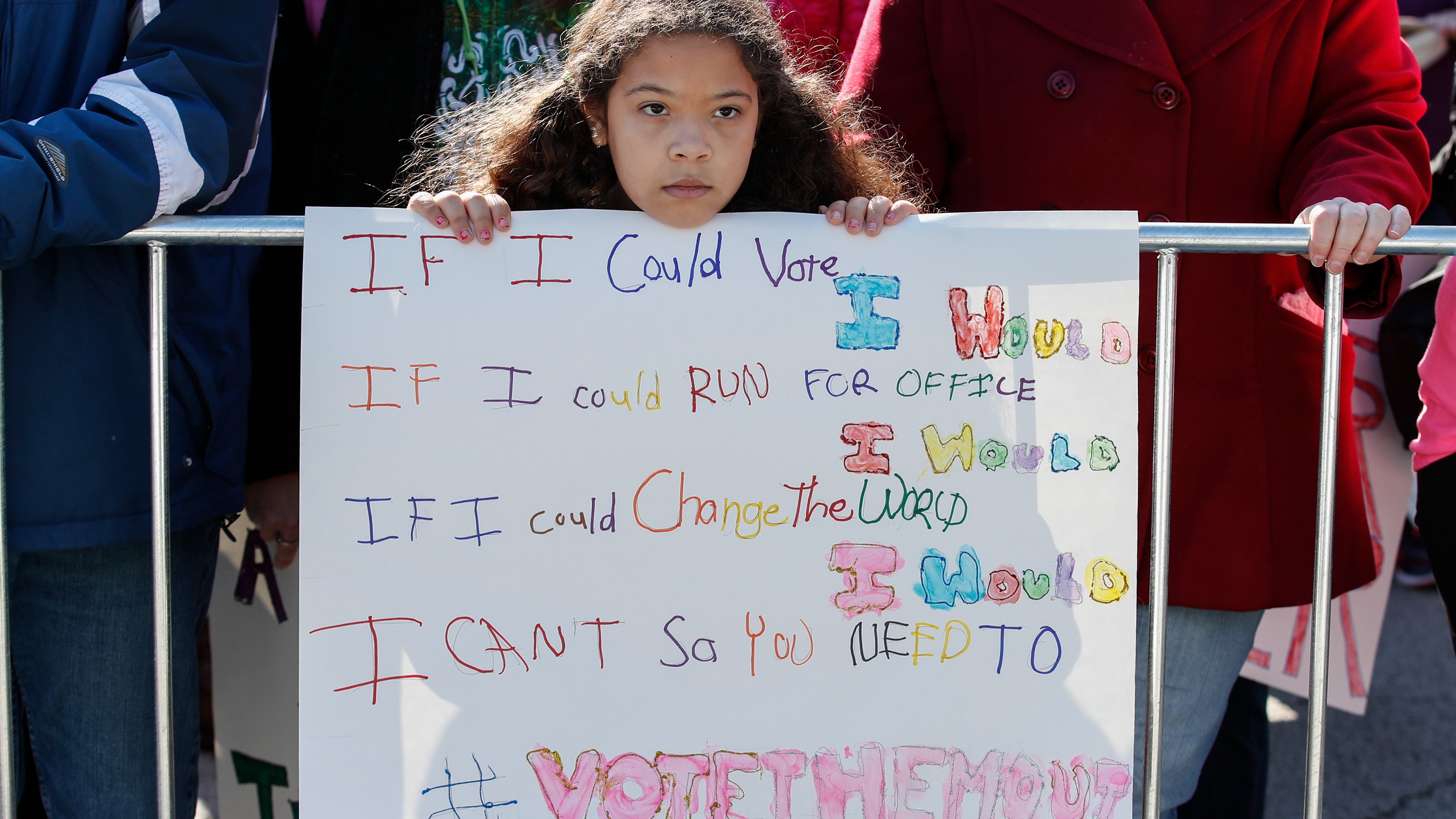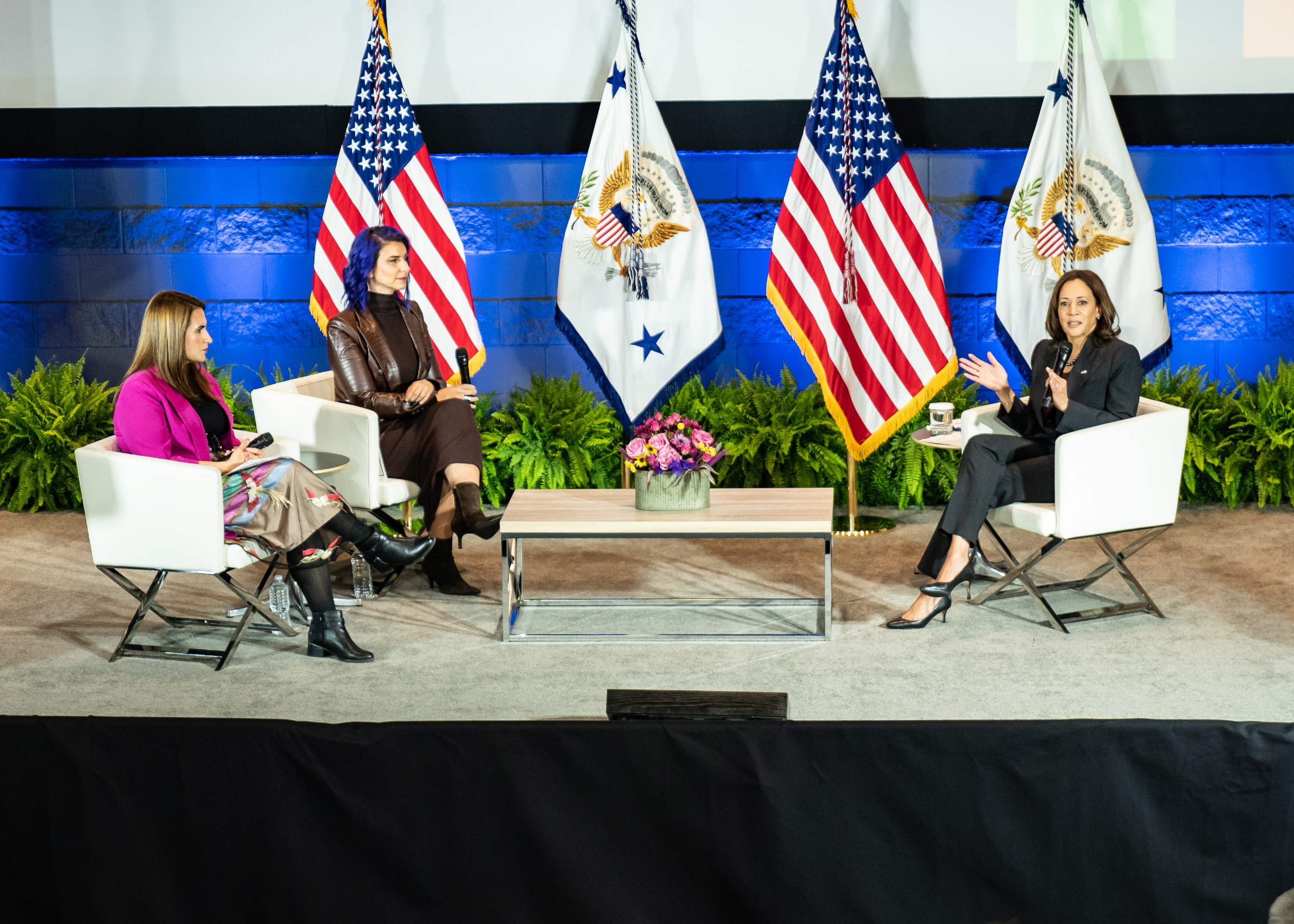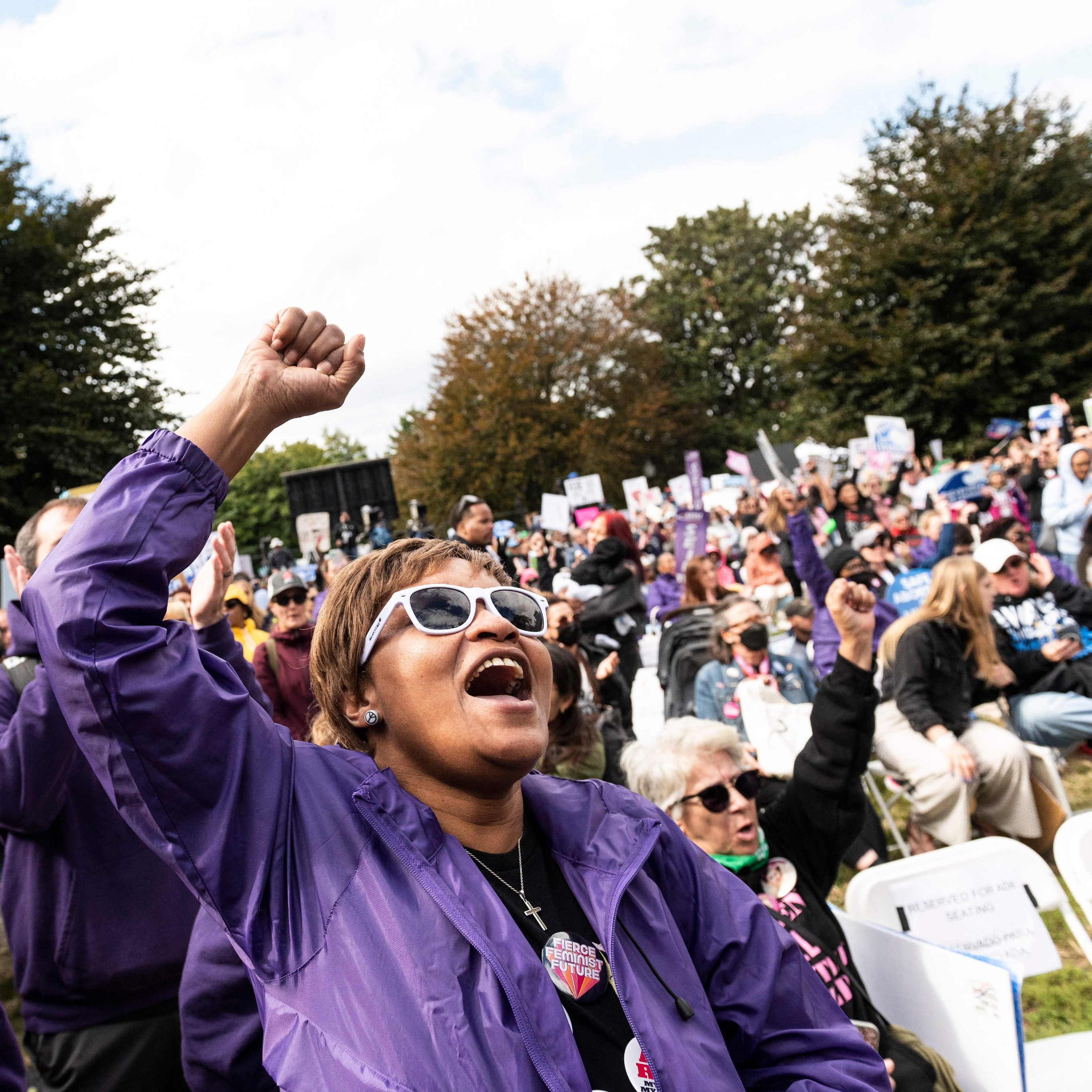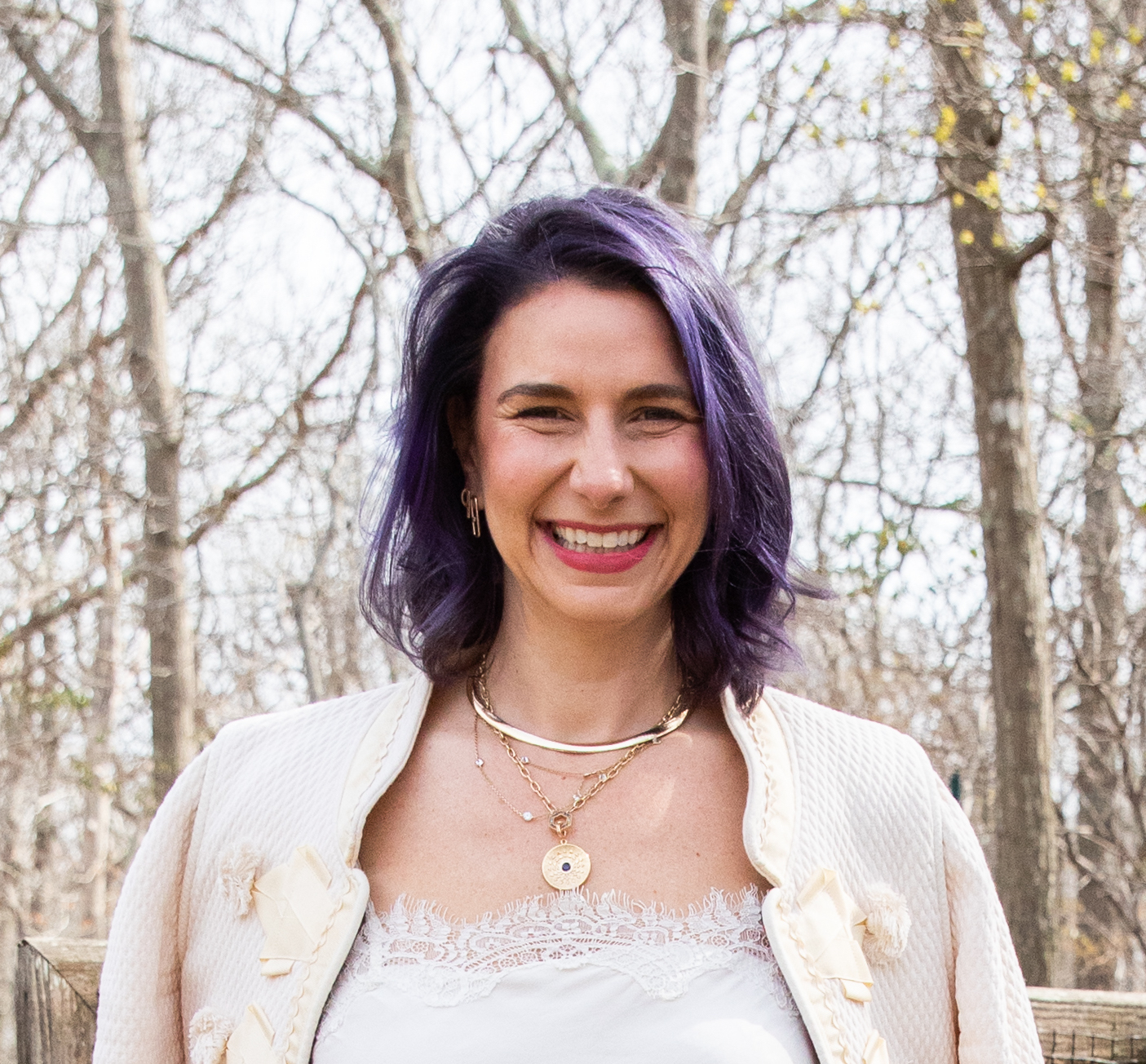4 Ways Your Rights Are on the Ballot This Election
During a live podcast recording with contributing editor Emily Tisch Sussman, Vice President Kamala Harris outlined the stark impact these midterms could have on women.


Every election matters—but this year, there’s more at stake than ever, from reproductive rights to the state of our democracy. With early voting underway in many states and election day (November 8!) right around the corner, now's the time to decide how you're going to vote. And no one understands how voters' choices could impact our country more than Vice President Kamala Harris.
The Dobbs v. Jackson's decision, coupled with the continuing denial of the results of the 2020 election, have made it feel like the democracy America once had is crumbling beneath our feet. I was an organizer in 2016, and the impending doom we sensed that election night is eerily similar to the feelings evoked by the fall of Roe v. Wade in June.
Since the overturning of Roe, states across the country have either passed and signed or proposed legislation that would criminalize abortions. Nearly half of states—22 to be exact—have laws on the books to either ban or severely restrict abortion. That means 36 million women have lost access to this basic form of reproductive care.
But despite the weight of these life-altering events, we have an opportunity ahead of us in this year’s midterms.
I had the chance to sit down with the Vice President to have a conversation about where our country stands regarding reproductive rights for women—and so many other important policies. Alongside my co-moderator, Lt. Governor Peggy Flanagan of Minnesota, we were able to dive into what Vice President Harris sees as the key issues defining this year’s midterm election and how we, as voters, can make a difference.

Vice President Harris (far right) talked abortion rights and more with contributing editor Emily Tisch Sussman (second from left) and Minnesota Lt. Gov. Peggy Flanagan.
Here, the four major takeaways:
1. The right to your own body is on the line.
Get exclusive access to fashion and beauty trends, hot-off-the-press celebrity news, and more.
When the Dobbs ruling came down, millions of women had essential access to abortion ripped away, both by pre-existing trigger laws and new laws introduced this summer. Vice President Harris reinforced the importance of local elections, especially in regards to abortion rights, telling the audience, “Back to the local races—you know, whoever is your county prosecutor, if they are elected, pay attention. Especially for folks…in states where they're criminalizing healthcare providers. Doctors, nurses, healthcare providers are being criminalized with laws that are being proposed and passed that would literally put a healthcare provider in jail [for providing abortion care].”
It is a heartbreaking reality that states are even proposing—and then passing—legislation with no exceptions for victims of rape or incest. As a former prosecutor and staunch advocate for victims of domestic violence and sexual assault, the Vice President emphasized the inhumanity of it: “We're talking about a human being who has endured an act of extreme violence and violation to their body, and so-called leaders would then deprive that individual of the ability to make decisions about their body going forward. It's immoral.”
Nevertheless, Vice President Harris and President Biden have vowed to do their part to protect women. “It is a fact that the President of the United States, Joe Biden, has said he will not allow the filibuster to get in the way of passing and signing into law the Women's Health Protection Act…which would codify the protections of Roe v. Wade,” she added.
She went on: “It is also a fact that we need two more United States senators who agree with that, in order for the President to be able to do that.” Senate races in many swing states, including Georgia, Nevada, and Pennsylvania, are increasingly tight. And many candidates have been vocal about their opposition to abortion access—even if they have tried to hide that position post-primary.
2. Health care, especially for Black and Native mothers, is on the ballot.
One issue that is incredibly personal to Vice President Harris is maternal health care. She underscored what’s at stake for Black and Native mothers in the United States this election cycle, saying, “Black women are three times more likely to die in connection with childbirth. Native women are twice as likely to die in connection with childbirth. Rural women are one-and-a-half times as likely to die.” The Biden administration has elevated the issue, hosting the Maternal Day of Action Summit last year and announcing a series of actions aimed at reducing maternal mortality.
But more can be done. Congresswoman Lauren Underwood (IL-14) has introduced the Black Maternal Health Momnibus Act of 2021 in the House, but it has not moved forward in Congress. “Who is in Congress really matters,” Harris noted. Every House rep is up for election next week. Find out where your candidates stand on not just providing—but revolutionizing—essential health care.
RELATED STORY

3. Democratic principles are at stake—in the United States and around the world.
Vice President Harris pointed out the implications of the election beyond abortion access: “There's so much about this issue, all of the layers to this issue, which include, as much as anything, our democracy and the state of our democracy. I think of democracy as [having] two sides to it. There's a duality to it. On the one hand, when the principles upon which our democracy was founded—freedom, liberty, justice—when a democracy is intact, it is extraordinarily strong, [as is] the power it gives the people. The duality is that, on the other hand, it is extremely fragile, this democracy. It is only as strong as our willingness to fight for it.”
Many candidates up and down the ballot this midterm cycle deny or reject the legitimacy of the 2020 election. They are outright running on it as part of their platform. If such candidates win, particularly offices like Secretary of State, our entire election system could be undermined or overhauled. Gerrymandering is already a serious problem that has historically allowed political parties to influence their own ability to stay in power; but this is different. The process of choosing our representatives could change from free and fair to partisan.
And the laws and policies we make in the United States have impacts far beyond our nation’s borders. Vice President Harris spoke about our country’s role in the world, noting, “One of my great fears is that autocrats around the world can then look at their people and say, ‘You want to talk about these rights? You want to talk about your United States of America? Look what they just did.’ And in that way, the impact will be not only for the people of America, but potentially people around the world.”
4. LGBTQ+ rights are under attack.
While the Dobbs decision only directly impacts abortion rights, the Supreme Court decision opened the door for other rights to be eroded in the future. Vice President Harris emphasized this risk, saying, “Don't forget, in the Dobbs decision…Clarence Thomas said the quiet part out loud. He literally said this opens up the next steps, which are to reexamine—which means question, which means attack, as far as I'm concerned—the right to contraception and the right to marry the person you love.”
Congress has since taken steps to protect marriage equality, with the House passing the Respect for Marriage Act, which would codify the legality of same-sex and interracial marriages under federal law, with bipartisan support. But the Senate pushed their vote on the bill until after the midterms, meaning who we decide to send to Congress could affect whether or not this bill becomes law.
Vice President Harris ended the conversation with a call to action, telling the audience: “Do not be overwhelmed, do not be tired, do not throw your hands up when it’s time to roll up your sleeves.”

Emily Tisch Sussman is the Founder and Host of “She Pivots,” the podcast in partnership with Marie Claire about women, their stories, and how their pivot became their success. She is a contributing editor to Maire Claire and the guest host of the Marie Claire Instagram Live series “Getting Down to Business.”